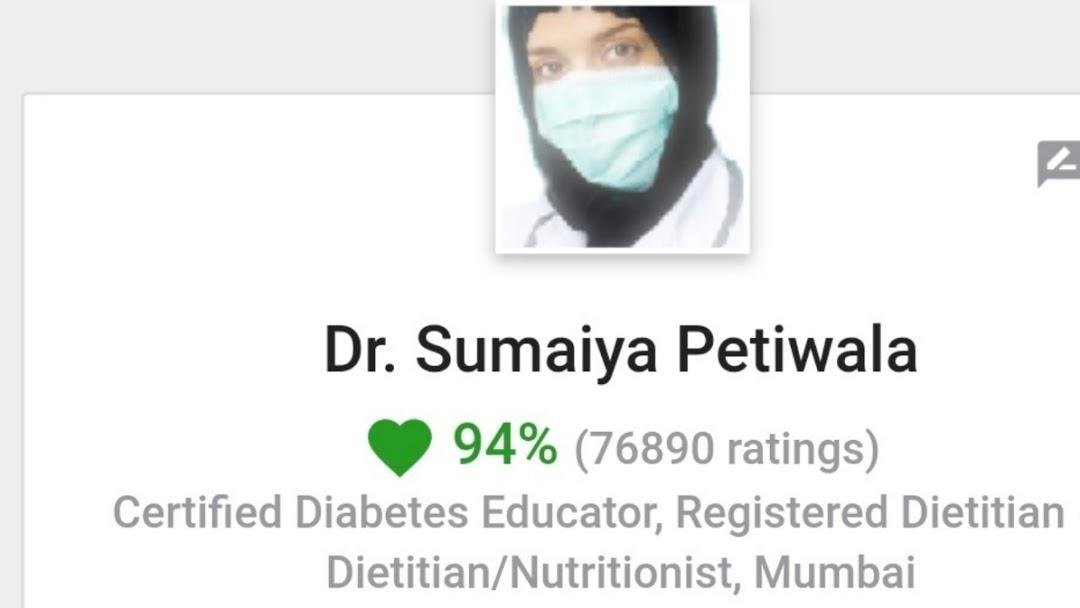Nutrition and Mental Health: How Your Diet Affects Your Mood and Well-being
Discover the powerful connection between what you eat and how you feel. This comprehensive guide explores the link between nutrition and mental health, offering practical, evidence-based dietary strategies to improve your mood and overall well-being. Learn how to nourish your brain for optimal function and mental clarity with advice from Dr. Sumaiya, a registered dietitian.
Table of Contents
- Introduction: The Gut-Brain Connection
- Essential Nutrients for Brain Health
- Dietary Patterns and Mental Well-being
- Foods to Limit or Avoid
- Practical Dietary Tips for Improved Mental Health
- Mindful Eating and Mental Health
- Seeking Professional Help
- Conclusion
- References
Introduction: The Gut-Brain Connection
The connection between nutrition and mental health is a rapidly growing area of research. As a registered dietitian at Dr. Sumaiya NutriCare Clinic, I frequently work with clients seeking to improve their mental well-being through dietary changes. It’s crucial to understand that the brain, like any other organ, requires specific nutrients to function optimally. The gut-brain axis, a complex bidirectional communication system, links the emotional and cognitive centers of the brain with peripheral intestinal functions. This means what we eat directly impacts our brain’s health and, consequently, our mental state.

Essential Nutrients for Brain Health
The brain relies on a steady supply of key nutrients to maintain its complex networks of neurons and neurotransmitters. These include:
- Glucose: The brain’s primary energy source, derived from carbohydrates.
- Omega-3 Fatty Acids: Crucial for brain structure and function, particularly DHA and EPA.
- Vitamins: B vitamins (especially B6, B12, and folate), vitamin D, and vitamin E play vital roles in brain health and neurotransmitter production.
- Minerals: Iron, zinc, magnesium, and selenium are essential for various brain functions, including cognitive performance and mood regulation.
- Antioxidants: Protect brain cells from damage caused by free radicals.
- Amino Acids: The building blocks of proteins, and precursors to neurotransmitters like serotonin and dopamine.
Dietary Patterns and Mental Well-being
Several studies have demonstrated a strong correlation between healthy dietary patterns and improved mental health outcomes. For example, a 2017 study published in BMC Medicine found that a Mediterranean-style diet, rich in fruits, vegetables, whole grains, legumes, nuts, seeds, olive oil, and fish, was associated with a reduced risk of depression. This type of diet is naturally high in the essential nutrients discussed earlier.
“A growing body of evidence suggests that dietary interventions can play a significant role in the prevention and treatment of mental health disorders.” – Felice N. Jacka, PhD, President of the International Society for Nutritional Psychiatry Research
Other research supports the benefits of diets high in whole, unprocessed foods and low in processed foods, added sugars, and unhealthy fats. A 2018 study published in *PLoS One* found an association between a “Western” dietary pattern (high in processed foods, red meat, and sugary drinks) and an increased risk of depression and anxiety.
Foods to Limit or Avoid
Conversely, certain foods and dietary habits can negatively impact mental health:
- Processed Foods: Often high in unhealthy fats, added sugars, and artificial ingredients, which can contribute to inflammation and disrupt brain function.
- Added Sugars: Can lead to blood sugar spikes and crashes, affecting mood and energy levels. Excess sugar intake has been linked to an increased risk of depression.
- Unhealthy Fats: Trans fats and excessive amounts of saturated fats can negatively impact brain cell structure and function.
- Excessive Alcohol: While moderate alcohol consumption may have some benefits for certain individuals, excessive alcohol intake is detrimental to both physical and mental health.
- High Caffeine Intake: Can lead to anxiety, insomnia, and exacerbate existing mental health conditions in some individuals.
Practical Dietary Tips for Improved Mental Health
Here are some actionable steps you can take to support your mental health through diet:
- Eat a Balanced Diet: Focus on consuming a variety of nutrient-dense whole foods, including:
- Fruits (berries, citrus fruits, bananas)
- Vegetables (leafy greens, colorful vegetables)
- Whole grains (oats, brown rice, quinoa)
- Lean proteins (fish, poultry, beans, lentils)
- Healthy fats (avocados, nuts, seeds, olive oil)
- Include Omega-3 Fatty Acids: Aim to eat fatty fish (salmon, tuna, mackerel) at least twice a week, or consider a high-quality omega-3 supplement. Vegetarian sources include chia seeds, flaxseeds, and walnuts.
- Stay Hydrated: Dehydration can negatively impact mood and cognitive function. Drink plenty of water throughout the day.
- Incorporate Probiotics: Support your gut health by consuming probiotic-rich foods like yogurt, kefir, sauerkraut, and kimchi. A healthy gut microbiome is linked to improved mental well-being.
- Limit Processed Foods, Added Sugars, and Unhealthy Fats: Read food labels carefully and choose whole, unprocessed foods whenever possible.
Mindful Eating and Mental Health
Mindful eating involves paying full attention to the experience of eating, without judgment. This practice can help you:
- Become more aware of your hunger and fullness cues.
- Reduce emotional eating.
- Improve your relationship with food.
- Enhance your enjoyment of meals.
To practice mindful eating, try to:
- Eat slowly and savor each bite.
- Minimize distractions (e.g., turn off the TV, put away your phone).
- Pay attention to the taste, texture, and aroma of your food.
- Listen to your body’s signals of hunger and fullness.
Seeking Professional Help
If you’re struggling with a mental health condition, it’s essential to seek professional help. A registered dietitian, like myself, can work with you to develop a personalized nutrition plan that supports your mental health. We can also collaborate with other healthcare providers, such as therapists and psychiatrists, to provide comprehensive care.
Conclusion
The relationship between nutrition and mental health is undeniable. By making informed dietary choices and adopting healthy eating habits, you can significantly impact your brain’s function and improve your overall mental well-being. Remember, everyone’s needs are unique, so working with a registered dietitian can help you create a plan tailored to your specific circumstances. At Dr. Sumaiya NutriCare Clinic, we’re committed to helping you navigate this complex topic and achieve optimal mental and physical health.
References
- Jacka, F. N., O’Neil, A., Opie, R., Itsiopoulos, C., Cotton, S., Mohebbi, M., … & Berk, M. (2017). A randomised controlled trial of dietary improvement for adults with major depression (the ‘SMILES’trial). *BMC medicine*, *15*(1), 1-13.
- Parletta, N., Zarnowiecki, D., Cho, J., Wilson, A., Bogomolova, S., Villani, A., … & Procter, N. (2019). A Mediterranean-style dietary intervention supplemented with fish oil improves diet quality and mental health in people with depression: A randomized controlled trial (HELFIMED). *Nutritional neuroscience*, *22*(7), 474-487.
- Lai, J. S., Hiles, S., Bisquera, A., Hure, A. J., McEvoy, M., & Attia, J. (2014). A systematic review and meta-analysis of dietary patterns and depression in community-dwelling adults. *The American journal of clinical nutrition*, *99*(1), 181-197.
- Sarris, J., Logan, A. C., Akbaraly, T. N., Amminger, G. P., Balanzá-Martínez, V., Freeman, M. P., … & Jacka, F. N. (2015). Nutritional medicine as mainstream in psychiatry. *The Lancet Psychiatry*, *2*(3), 271-274.


